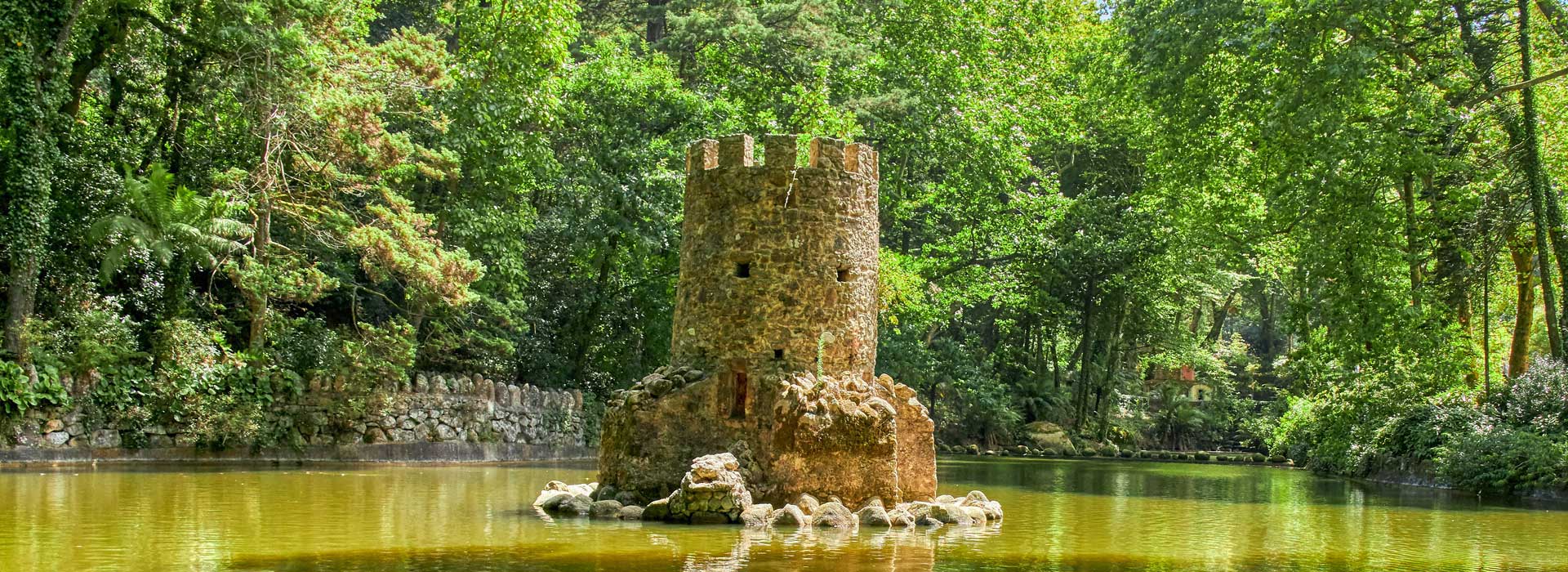
PARQUE DA PENA (PENA PARK)
King Ferdinand's magnificent palace stands as a testament to his extraordinary vision, radiating exuberance and fantasy. To complement such a fairy-tale edifice, he envisioned equally enchanting surroundings. Inspired by the German Romanticism movement, the gardens were designed with exaggerated ideals akin to those of the Pena Palace.
Throughout the creation of the park, Sintra's tropical micro-climate and unique topology were expertly harnessed, resulting in a total transformation of the landscape. Spanning over 85 hectares, visitors are led along winding paths that meander through an array of exotic trees and plants sourced from around the world.
The park is divided into multiple gardens and landscaped areas, adorned with pavilions, decorative buildings, and captivating water features, including waterfalls, ponds, lakes, and fountains. Today, visitors continue to be captivated by Ferdinand's visionary landscape, filled with a sense of wonderment at every turn.
A WALK AROUND THE PARK
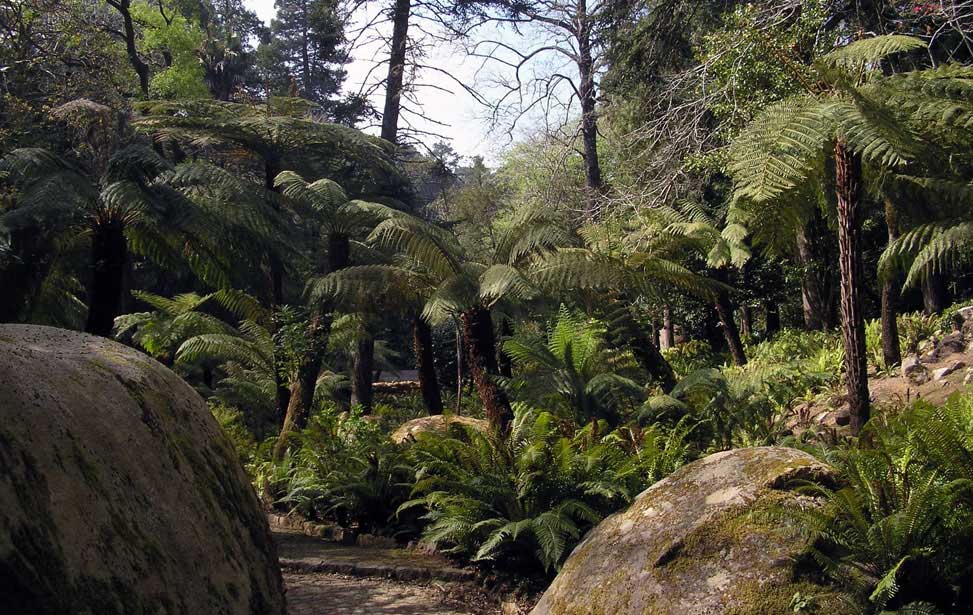
Pena park pathway
QUEEN AMÉLIA"S GARDEN
Once you pass through the two small gatehouses at the main entrance, the path ascends towards the Pena Palace, flanked by Queen Amélia's Garden on the right-hand side. While Pena Park was primarily the brainchild of one man, King Ferdinand II although Queen Amélia II also played a significant role in its development. She transformed former staff allotments into a French-style formal garden, which underwent several design changes in the 20th century. Recent restoration efforts aim to revive the garden's original late 19th-century layout.
DOVECOTE HOUSE
Nearby, the Dovecote House hosts a multimedia 3D model showcasing the Sintra landscape. This interactive centre allows visitors to access information and project geographic content onto the 3D model of the Cultural Landscape, providing a comprehensive introduction to the park before embarking on your adventure. | 10h00 to 13h00/14h00 to 17h30
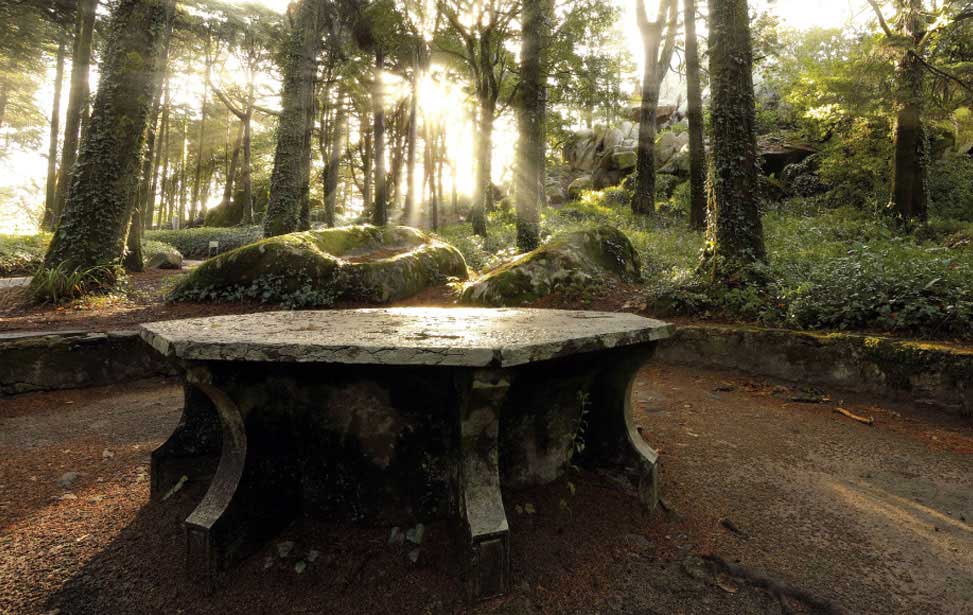
Table of the Queen
After rejoining the route, the path diverges at the Manège, an area formerly used as a riding school and tennis court. Opting for the left-hand path offers a recommended route around Pena Park, while the right-hand path leads directly to the Palace. Following the anti-clockwise direction around the Temple of the Columns, you'll encounter the Table of the Queen, a favourite spot of Queen Dona Amélia. Nearby, the Statue of the Warrior stands on a rocky pedestal.
Continuing beyond this point, you'll reach a crossroads. Taking the first left path leads to a long walk up to the Cruz Alta, the highest point of the Sintra hills, offering breathtaking vistas. The other two paths eventually lead to the Camellia Garden, with one passing through Saint Catherine's Heights, a rocky outcrop and viewpoint.

With this entrance ticket, you can gain entry to Pena Palace and Park at your leisure. Buy online before you arrive to avoid queues and have the convenience of the e-ticket on your phone.
CAMELLIA GARDEN
Opposite the Water Wheel once fed the water storage tanks of the Palace of Pena. Here is the Camellia Garden. A collection of camellias was planted on the site of an original 16th-century monastic estate in a series of terraces. They were imported from the very best growers in France, Belgium, Italy and Britain. Portuguese varieties primarily came from Porto and added to the collection later. From October until April, the park is in bloom with the Camellia flowers. Each year there are many competitions and exhibitions of the most beautiful. Seedlings are nurtured in the nearby Hot House whose original plumbing system is still functional.
The Queen's Fern Valley, adjoining the Camellia Garden, contains a collection of tree ferns originating from Australia and New Zealand. Planted after a period of acclimatisation in the Azores.
Downhill from the Queen's Fern Valley, you will come upon the Fountain of the Small Birds, an Arabesque pavilion whose spherical dome contains an Arabic inscription (see below). Following on from the Fountain of the Small Birds, the path leads down into the Valley of the Lakes (Vale dos Lagos). Five small bodies of water are famed for their unusual duck houses (see below). Close by, at the gatekeeper's house, there is a café where you can have a cuppa and rest for a while. West of the lakes is the Chalet of the Countess d'Edla and its gardens.

MAP OF THE PARK
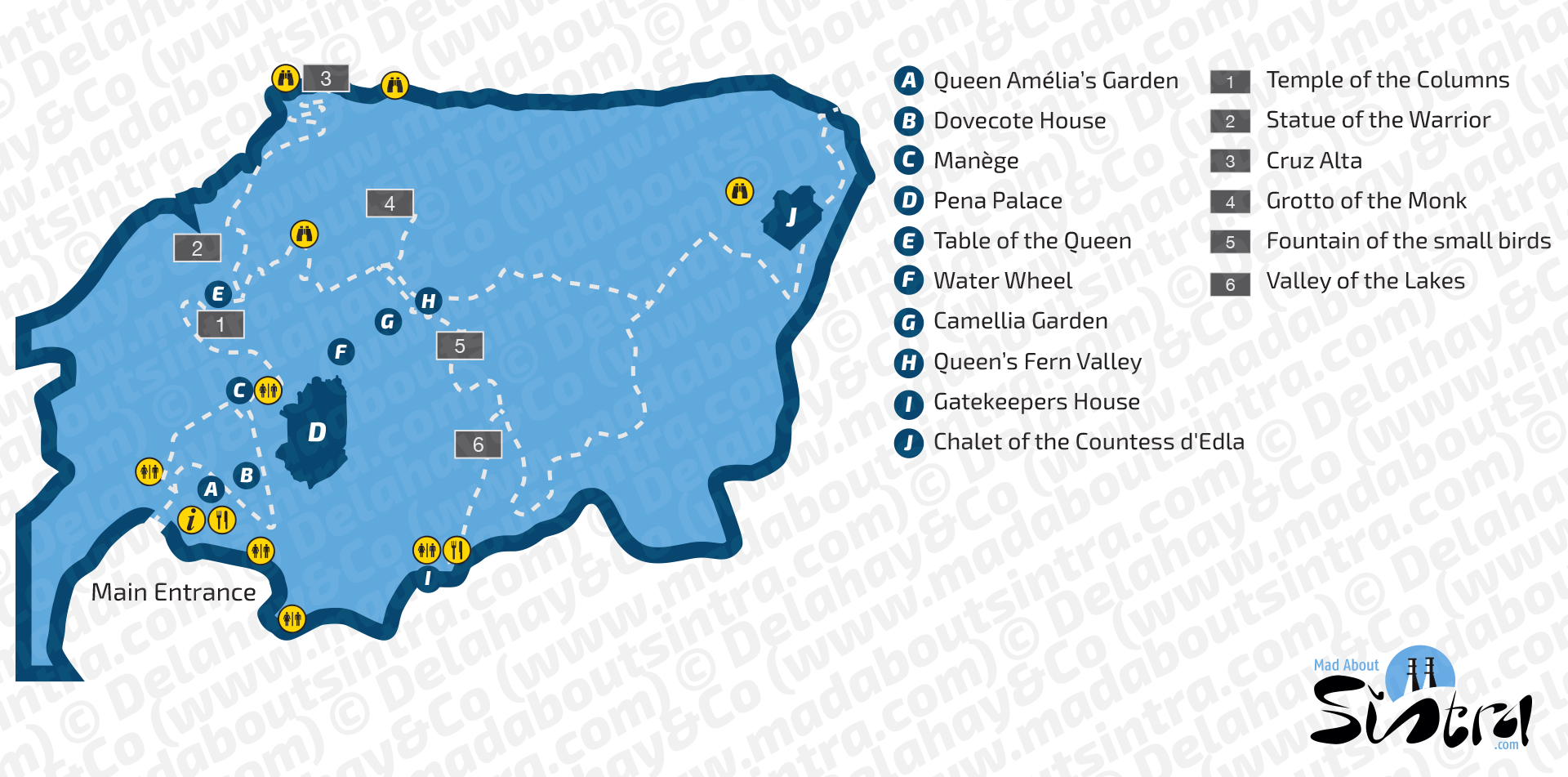
Map of the Pena Park (Parque de Pena) © Delahay&Co
COMBINATION DEALS
Save even more money with these popular combination tickets. Book with confidence with the FREE CANCELLATION option.
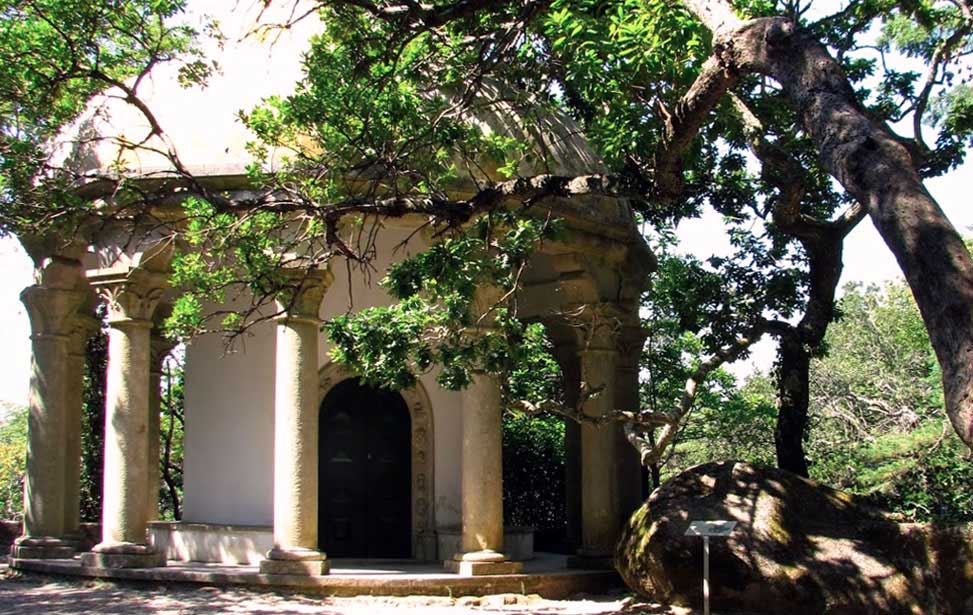
1
Temple of the Columns
Northeast of Pena Palace, there is a mound known as the St. Anthony's Heights. On top is the Temple of the Columns. From here, there's a spectacular view over the palace whilst itself being overlooked by the Statue of the Warrior. It was built in 1840 on the site of a former chapel dedicated to St. Anthony as a present to King Fernando II from his father.
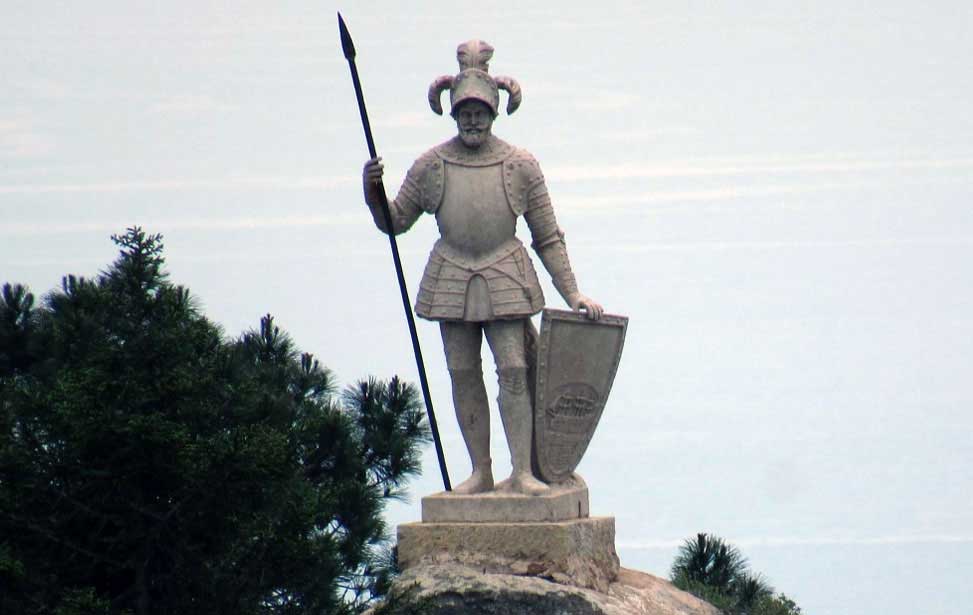
2
Statue of the Warrior (Estatua do Guerreiro)
This bronze sculpture of a fictitious knight standing upon a granite summit. It was sculpted by Ernesto Rusconi in 1848 and is a likeness of King Ferdinand II. The statue forms part of the Pena horizon that can be viewed from various places within the park and beyond.
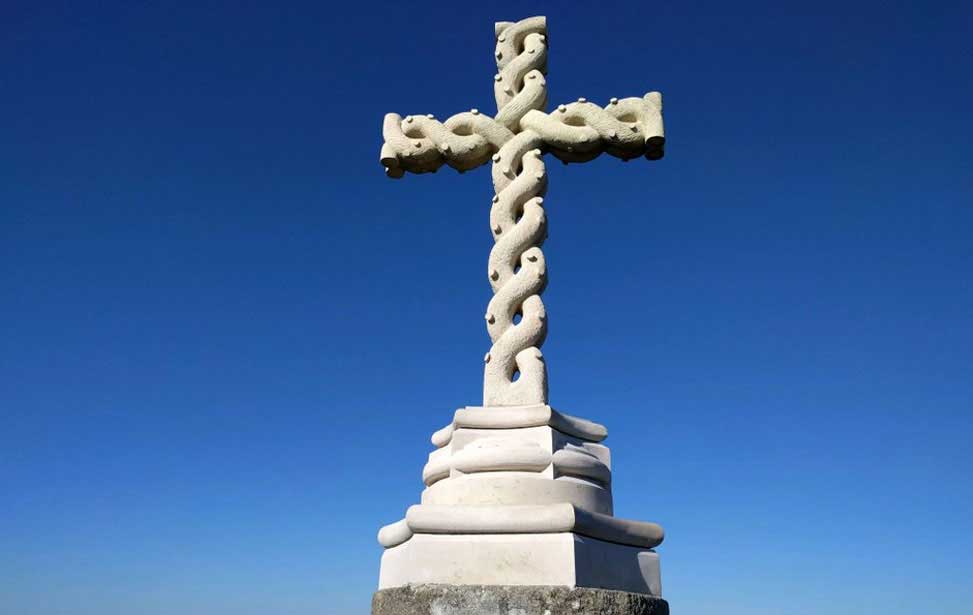
3
Cruz Alta
The Cruz Alta is perched on the highest peak in the park at 529 metres above sea level. From here are the best panoramic views over the surrounding countryside and a postcard view of Pena Palace. Accessible via a footpath that does its best to navigate the steep gradient. This current cross replaces a cross first erected by King João III in the 16th century.
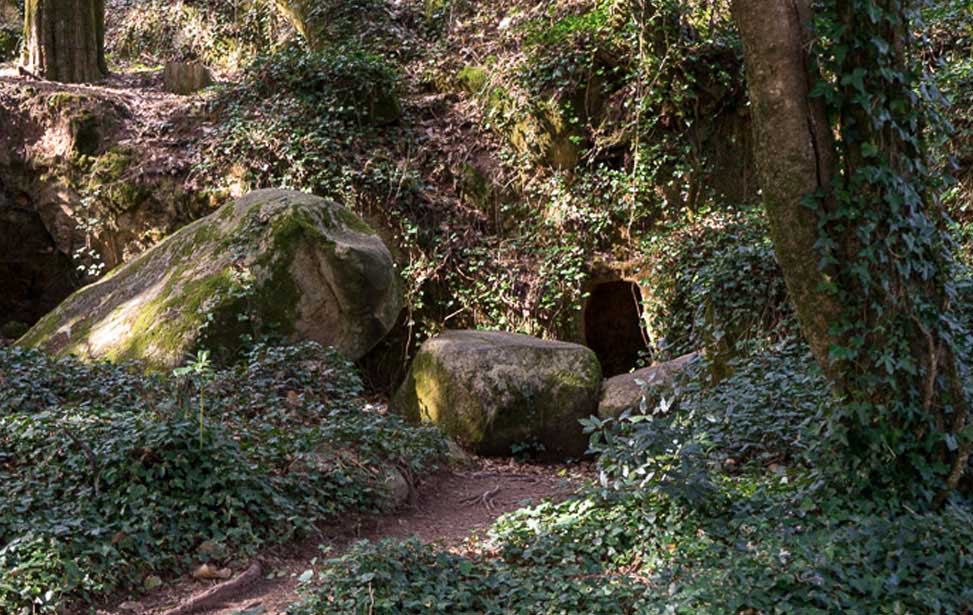
4
Grotto of the Monk
The Grotto of the Monk dates back to the period when the area was the garden of a 16th-century monastery. This opening in the living bedrock was used by the Hieronymite monks. It was a refuge for deep meditation and contemplation.
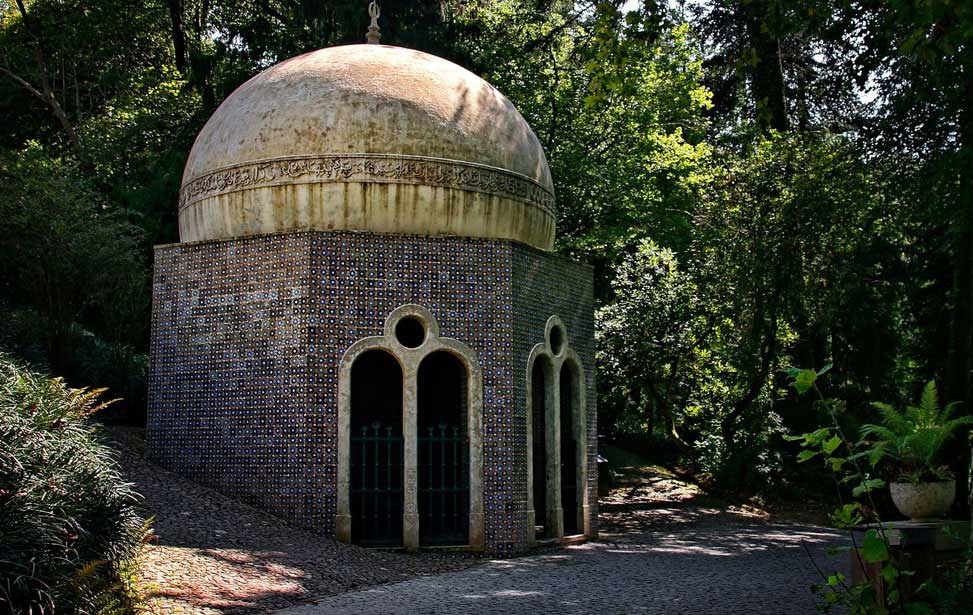
5
Fountain of the small birds
A Neo-Moorish pavilion with a hexagonal footprint topped by a dome inscribed with Arabic writing. Inside, between some benches, is a fountain with clear water. It's believed the pavilion was designed by Baron von Eschwege and built by Master João Henriques in 1840.
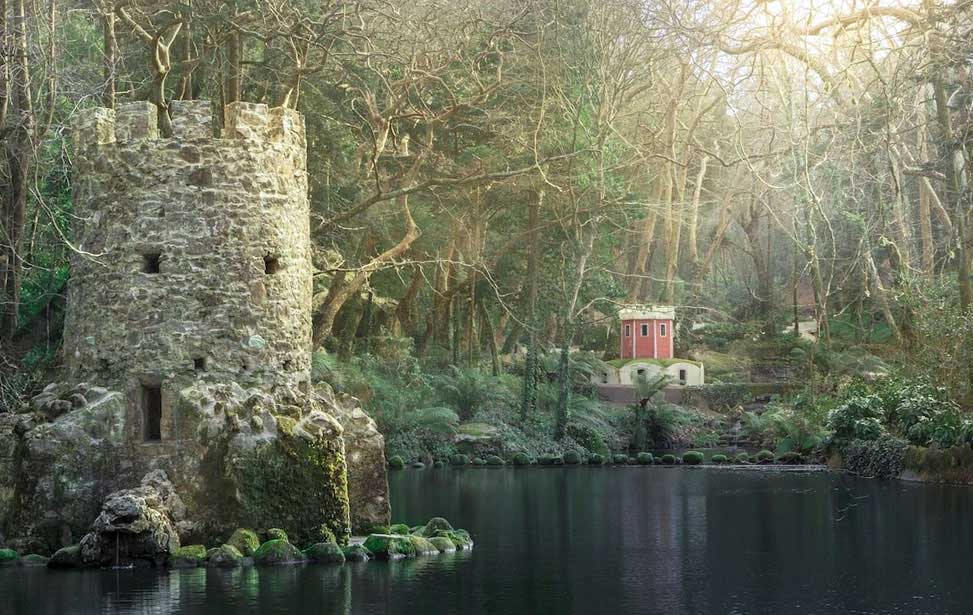
6
Valley of the Lakes (Vale dos Lagos)
A thin string of five small lakes stretches from the Fountain of the Small Birds pavilion to the Entrance by the Lakes, where the Parks streams congregate. Two unique castle-like duck houses add to the magical ambience of the place. There is a soundtrack of trickling water and the odd plop of feeding fish.

 Lisbon Card Discounts
Lisbon Card Discounts

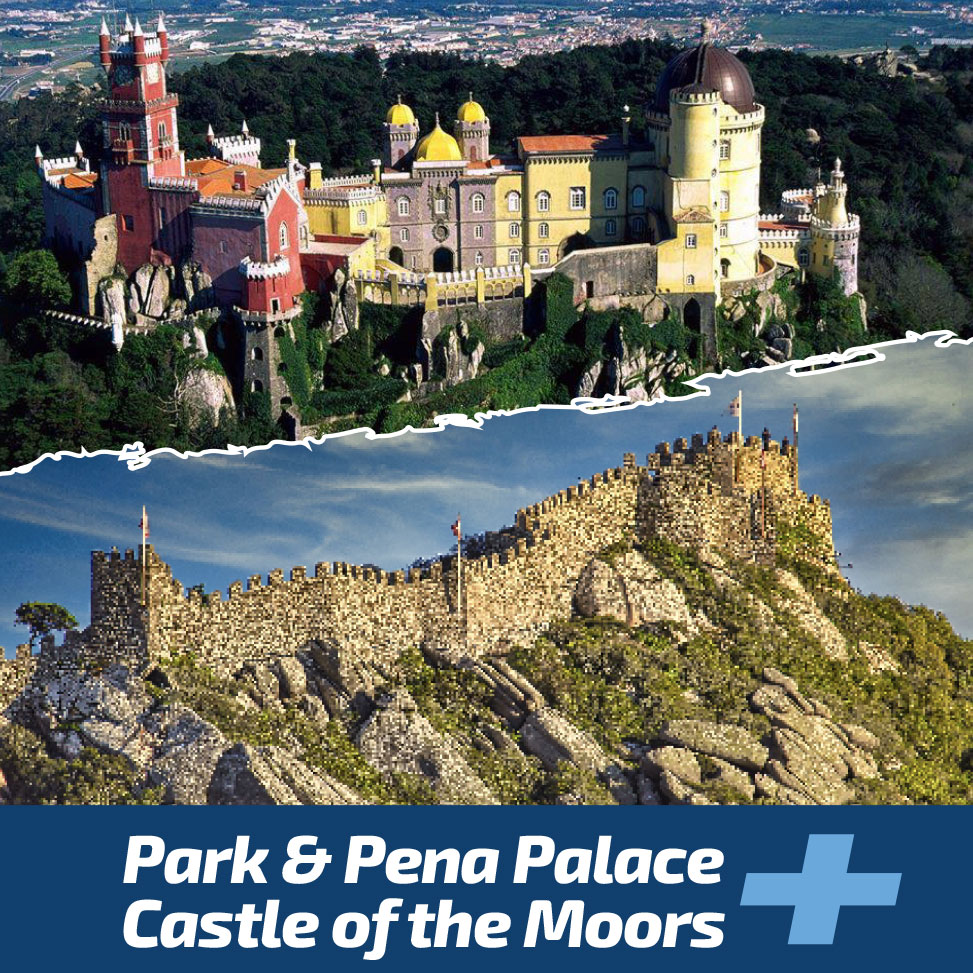
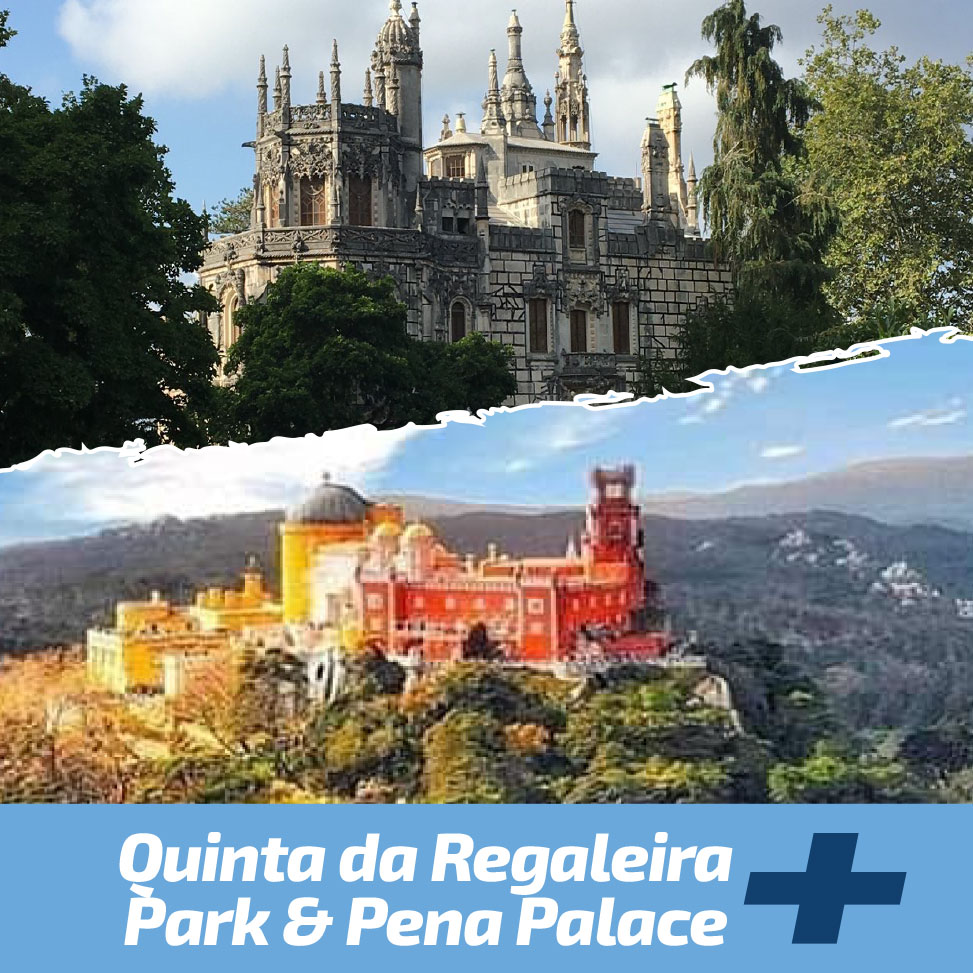
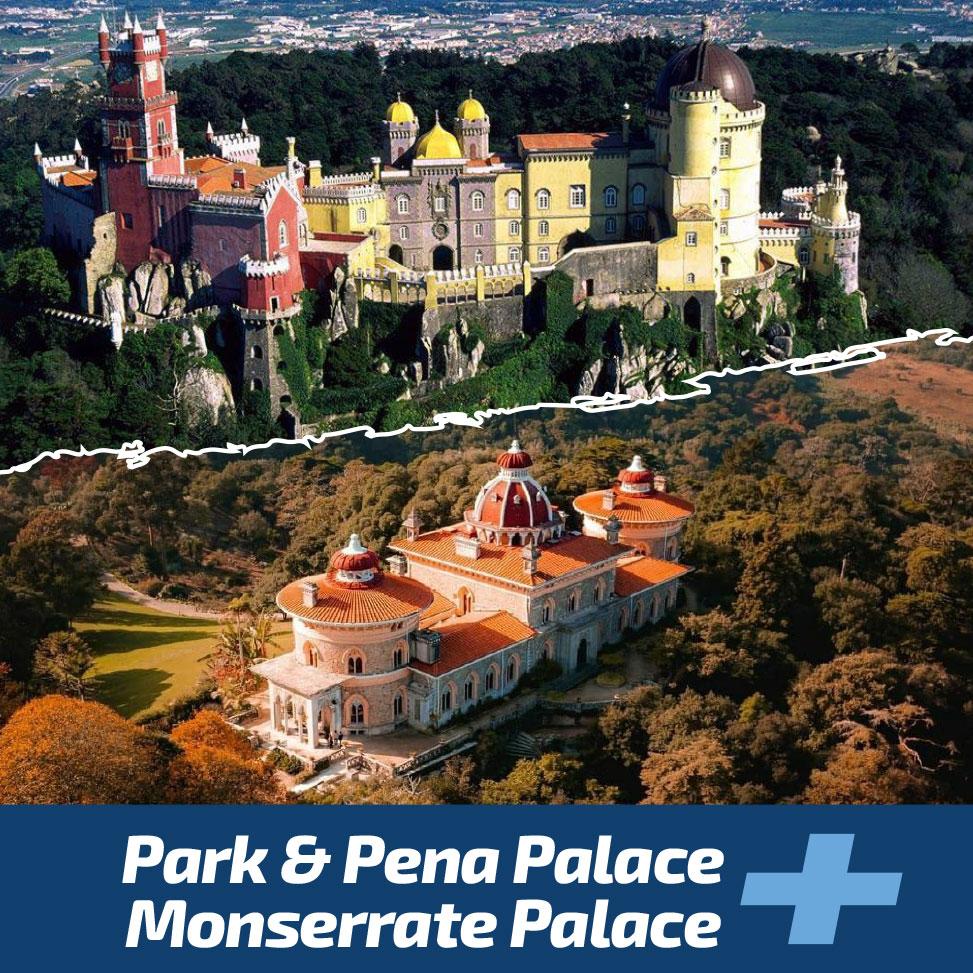
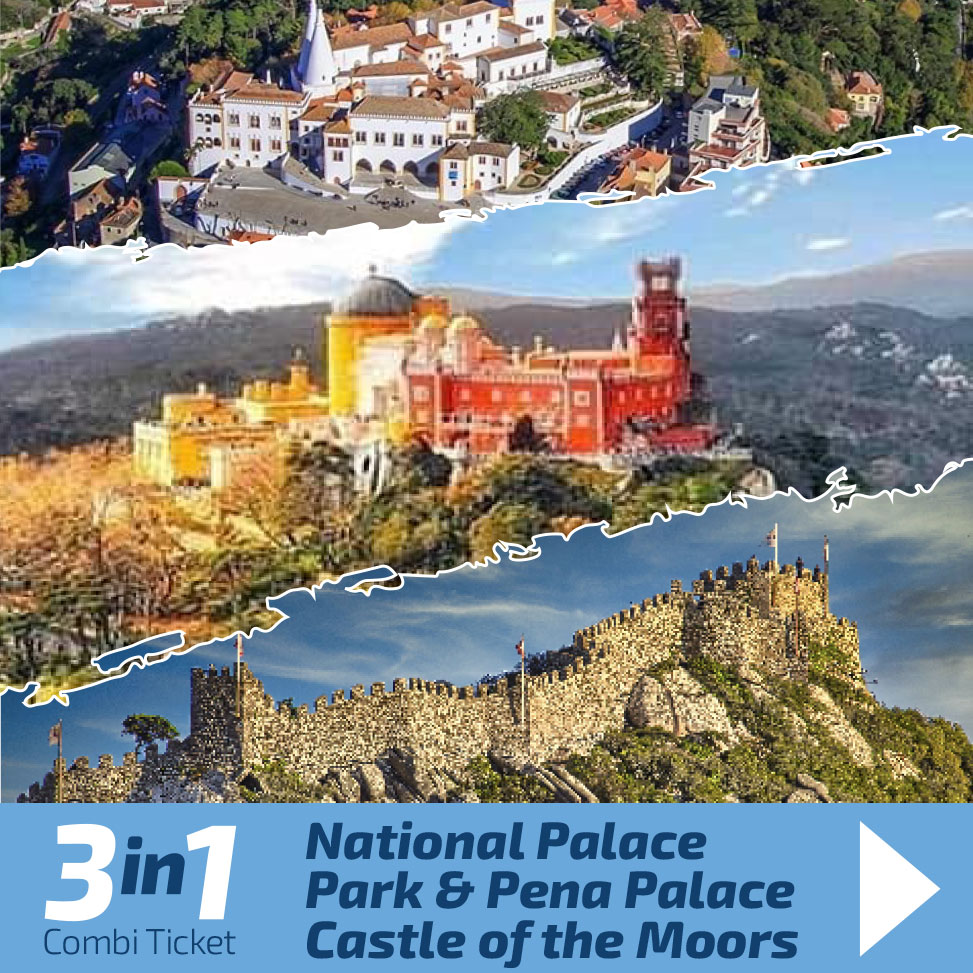
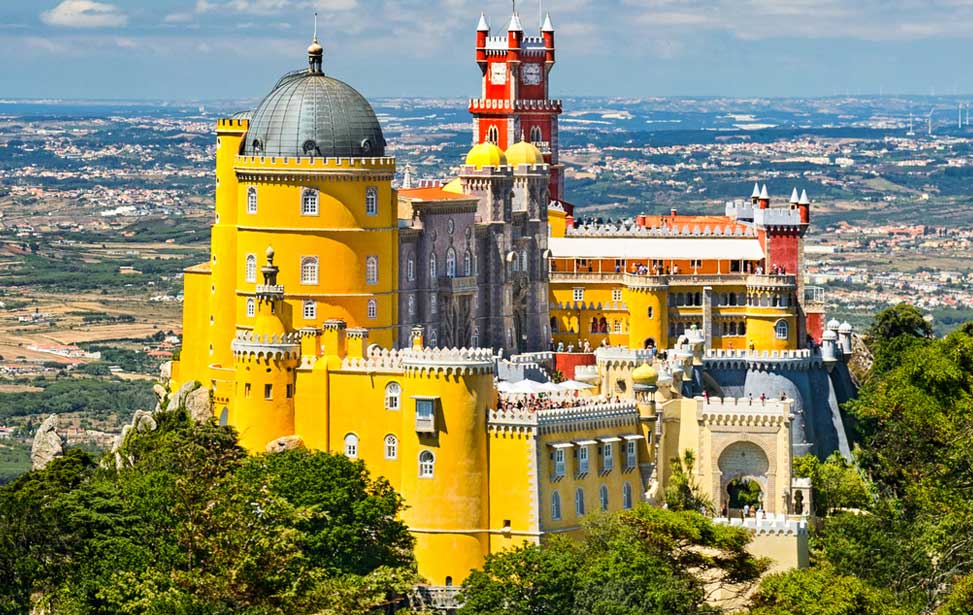
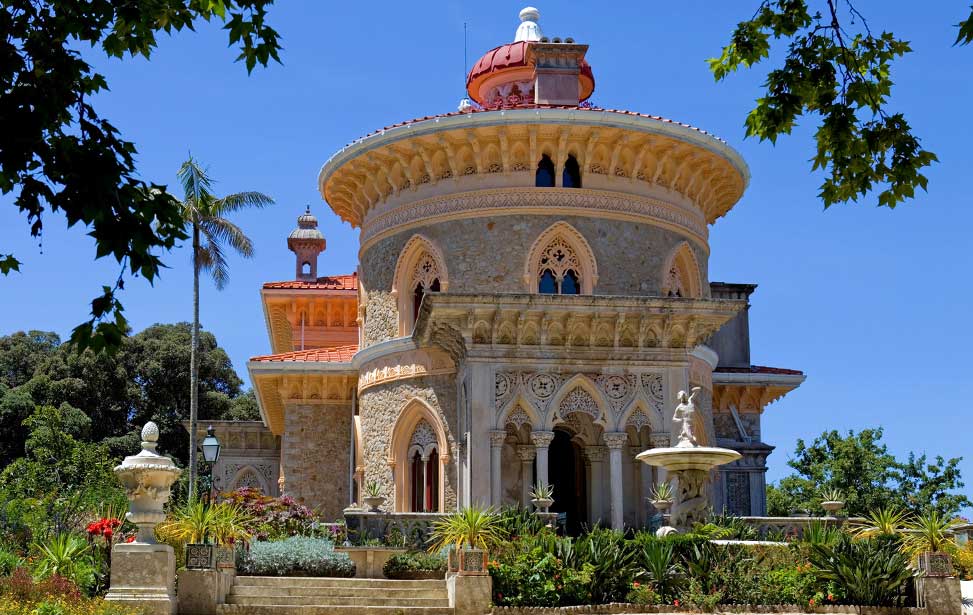
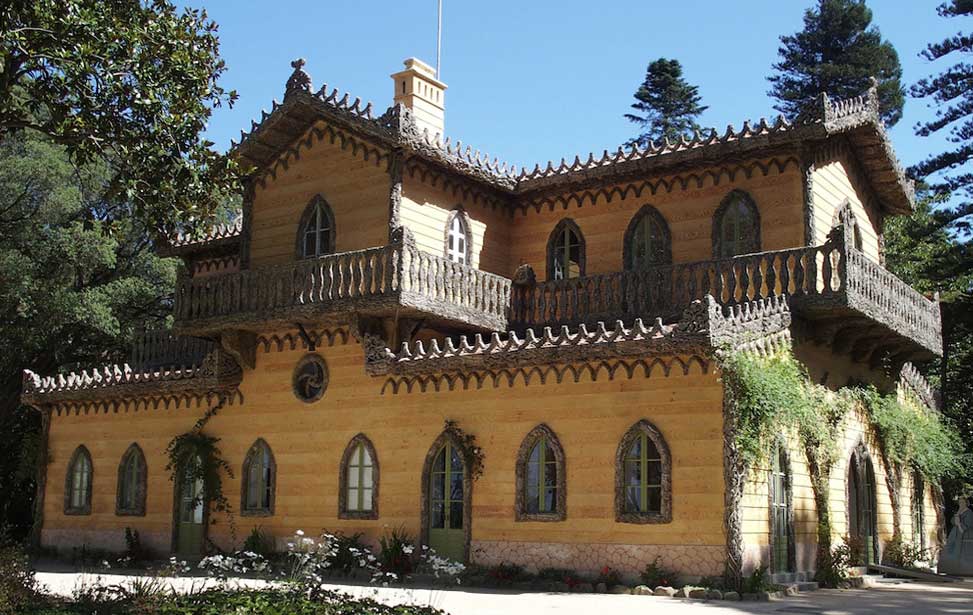
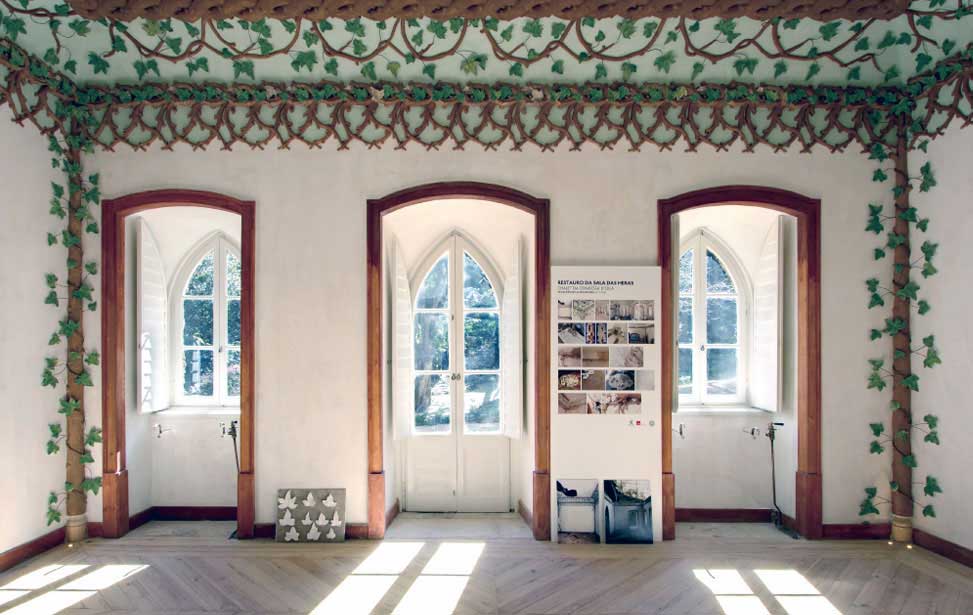
 Travel & Tourism Awards 2024, Best Lisbon Travel & Cultural Guide 2024 - UK
Travel & Tourism Awards 2024, Best Lisbon Travel & Cultural Guide 2024 - UK

